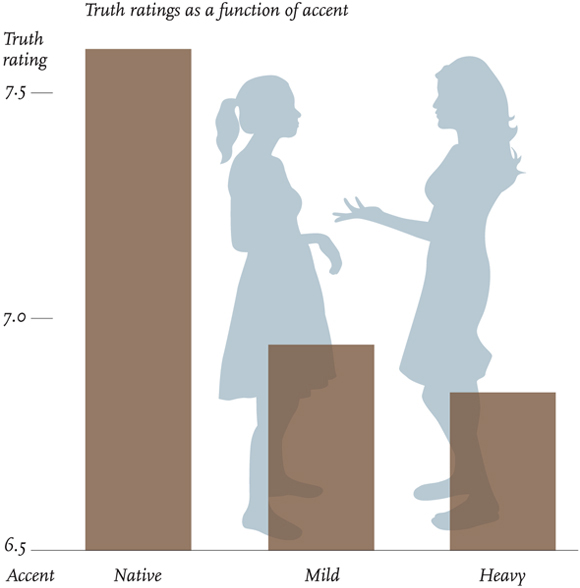Fig. 1:
The accent on truth
By Burke Frank, ’11
Photography by Allen Carroll
English speakers with foreign accents sound less credible to American ears simply because they’re harder to understand. In a study published online in the Journal of Experimental Social Psychology in June, Chicago psychology researchers Shiri Lev-Ari and Boaz Keysar recorded speakers with no accent, mild accents, and strong accents reading 45 trivia statements, such as “ants don’t sleep.” (Accents were Polish, Turkish, Austrian-German, Korean, and Italian.) They then played the recordings for native speakers of American English.
Subjects rated the speakers on a 14-centimeter line, each voice receiving a truthfulness rating based on a mark’s distance from the “definitely false” end of the scale. Native speakers scored an average 7.5, people with mild accents 6.95, and those with heavy accents 6.84. Even after a follow-up experiment, in which researchers told subjects that difficulty understanding speech could influence perceived credibility, the score gap between native and heavily accented speakers persisted.
Confusing the ease of processing speech and the trustworthiness of what’s said, writes Lev-Ari, the study’s lead author, could “have an insidious impact” on non-native job candidates, eyewitnesses, and others who speak in accented English.
Return to top
